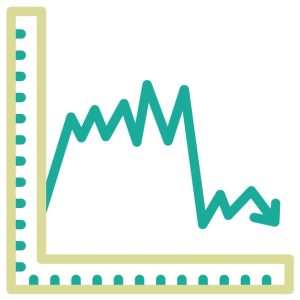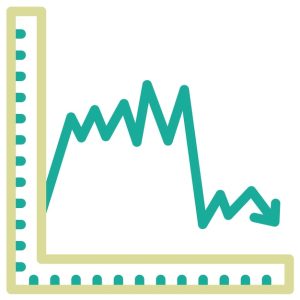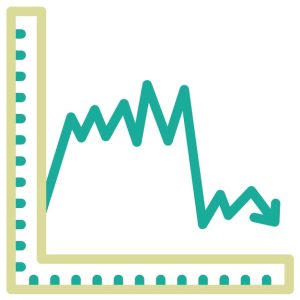
Estimated reading time: 8 minutes
Key Takeaways
- Mortgage refinance rates in 2025 hover around 6.5%-7%, prompting homeowners to consider refinancing strategies.
- Even in a relatively high-rate environment, changing loan terms or accessing equity can still be beneficial.
- Staying informed on mortgage rate trends is vital when timing a refinance decision.
- Comparing multiple lenders and using tools like a mortgage refinance calculator helps find the best deal.
- Assess your long-term financial goals before committing to a new loan.
Table of contents
Introduction
In the current financial environment, understanding mortgage refinance rates is crucial for homeowners looking to optimise their property investments. With mortgage refinance rates ranging between 6.5% and 7%, many are wondering if
refinancing is a viable option. This guide examines the complex landscape of 2025 mortgage refinancing and the latest trends, providing the knowledge you need to make informed decisions about your home loan.
Current Mortgage Refinance Rates
As of May 2025, mortgage refinance rates, while historically high, have shown signs of stabilisation. Below are two of the most common refinance options:
- 30-year fixed refinance rate: 6.90%
- 15-year fixed refinance rate: 6.18%
These rates represent a slight decrease from previous weeks, with the 30-year rate dropping six basis points and the 15-year rate falling four basis points. For instance, a 30-year fixed refinance at 6.90% equates to about £658.60 per
£100,000 borrowed, which is a decrease of £4.02 from last week’s figures. While some regions offer slightly lower rates, the national average provides a useful benchmark for most homeowners.
Best Refinance Rates Available
Despite the higher-rate environment, some lenders are offering competitive deals. To secure a favourable rate, consider these steps:
- Compare offers from multiple lenders.
- Look for special promotions or lender incentives.
- Assess your credit score – higher credit often translates to better rates.
If you aim to change your loan terms or access home equity, refinancing can still be beneficial, even with rates near 7%.
Mortgage Rate Trends
Recent trends leading into 2025 have been influenced by factors such as inflation, economic conditions, and Bank of England policies. According to Mike Fratantoni, chief economist of the
Mortgage Bankers Association, “only a slight downward trend in mortgage refinance rates is expected for the remainder of 2025.”
Significant dips may be unlikely, but small decreases could present opportunities for homeowners.
Home Refinance Rates: 30-Year vs. 15-Year
Choosing between 30-year and 15-year refinance options largely depends on your financial goals:
- 30-year refinance: Approximately 6.90% with lower monthly payments but higher lifetime interest.
- 15-year refinance: Approximately 6.18% with higher monthly payments, less interest overall, and quicker equity buildup.
A 30-year term may be ideal if you seek a lower monthly outlay, while a 15-year term can help reduce financial burden over the life of the loan.
Comparing Refinance Rates
Using a
mortgage refinance calculator can help you estimate monthly payments and long-term savings. Look beyond the interest rate; factor in closing costs, origination fees, and any prepayment penalties.
These extra costs can significantly affect whether refinancing is worthwhile.
Mortgage Refinancing Options
Several refinancing avenues exist, each with unique advantages:
- Fixed-rate refinance: Lock in a stable interest rate for the loan’s duration.
- Variable-rate refinance: Enjoy lower initial rates but potential increases later.
- Cash-out refinance: Borrow against your home’s equity for renovation or other expenses.
The right option depends on whether you value consistency, initial savings, or a chance to tap into equity.
Using a Mortgage Refinance Calculator
A refinance calculator helps frame potential costs versus benefits:
- Enter your current loan details, including balance and rate.
- Input the new loan terms you’re considering.
- Compare your projected monthly payments and lifetime savings.
This quick analysis can reveal whether a refinance is financially wise in your situation.
Securing the Lowest Refinance Rates
To lock in an appealing rate, consider:
- Improving your credit score through on-time payments and debt reduction.
- Reducing your loan-to-value ratio by paying down principal.
- Exploring various lenders and negotiating terms.
- Paying points to lower the interest rate if it aligns with your long-term strategy.
Always weigh closing costs and fees alongside the interest rate to determine the real value.
Mortgage Refinance Comparison
Crafting a simple comparison chart can help clarify which refinance option suits you best. Consider elements such as:
- Interest rate and term length
- Total estimated costs (fees, points, closing costs)
- Monthly payment amounts
- Potential savings over the life of the loan
Such a visual comparison can highlight the best path for your personal and financial goals.
Conclusion
Refinancing may not be as enticing as it was during lower-rate years, yet it remains a powerful financial tool for many homeowners. By staying aware of current trends, leveraging resources like calculators, and understanding
the nuances of different refinance structures, you can determine if a fresh loan aligns with your objectives. Carefully compare offers, factor in potential trade-offs, and consider
long-term outcomes before signing on the dotted line.
For more detailed information on current rates and market conditions,
visit Bankrate Mortgage Rates. This resource provides up-to-date data
and expert analysis to guide your refinancing decisions.
FAQs
What factors influence mortgage refinance rates?
Mortgage refinance rates are affected by inflation, economic growth, the Bank of England’s policy decisions, and your personal credit score. A solid credit profile generally leads to lower interest rates.
How can I find the best mortgage refinance rates?
Compare multiple lenders, keep an eye on special promotions, maintain a strong credit score, and use a
refinance calculator to see how minor rate differences impact long-term costs.
Is it worth refinancing if rates are above 6%?
It depends on your goals. If you can reduce your monthly payment, shorten your loan term, or utilize your equity, refinancing could still be a sound move even at higher rates.
Do I need a high credit score to refinance?
While a higher credit score typically secures better terms, many lenders offer refinance programs for borrowers with varied credit backgrounds. However, stronger credit often results in a more favorable interest rate.
Are there hidden costs in refinancing?
Certain fees—such as appraisal, origination, and closing costs—can add up. Always request a detailed loan estimate from lenders so you can accurately compare total refinancing expenses.









